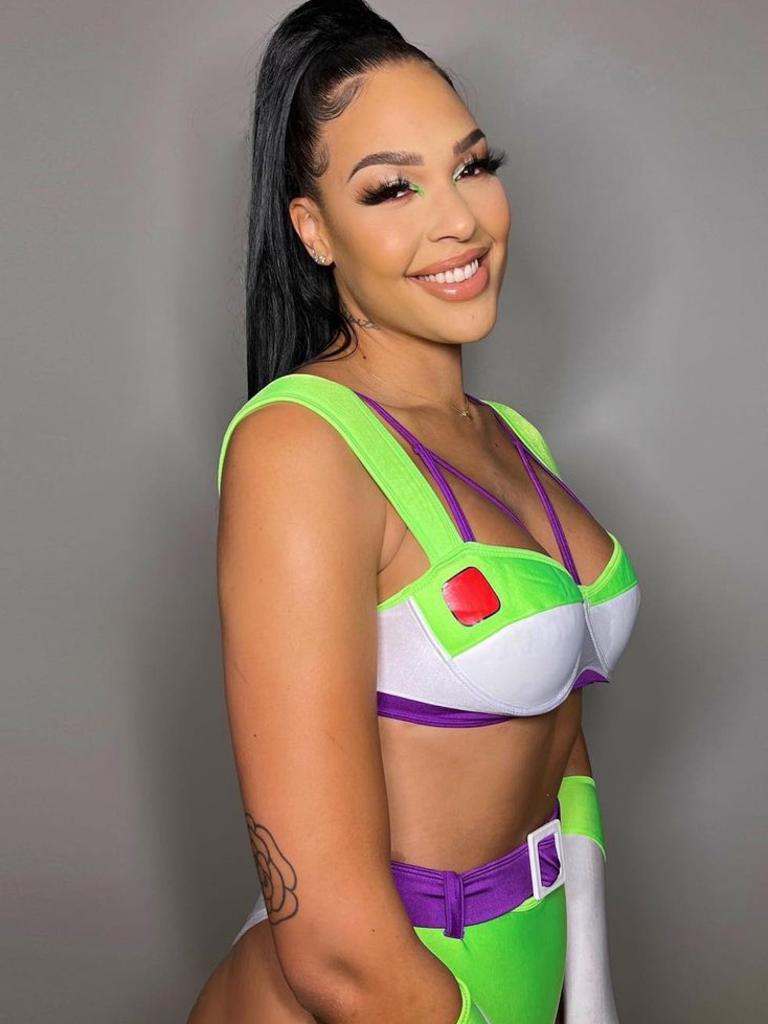WNBA Star Liz Cambage Joins OnlyFans Amid Wage Gap Debate

Liz Cambage, a prominent WNBA veteran, has stirred conversation by announcing her debut on OnlyFans. Known for her ten-year basketball career, Cambage’s decision shines a light on the stark pay disparity between WNBA and NBA athletes, reigniting discussions about gender equity in sports compensation.
WNBA players face substantial pay differences compared to their NBA counterparts. Top WNBA athletes, such as Diana Taurasi and Brittney Griner, earn a maximum salary of around $228,000 annually. In stark contrast, NBA stars like LeBron James command salaries exceeding $40 million per season.

These disparities reflect revenue differences: while the NBA generates around $10 billion annually, the WNBA earns approximately $60 million, operating at a consistent financial loss subsidized by the NBA. Critics argue that the gap stems from market demand and league profitability rather than discriminatory practices.
To supplement her income, Cambage leveraged her platform, including over a million Instagram followers, to join OnlyFans. Known for its paywall model, OnlyFans allows creators to monetize exclusive content, often attracting creators from diverse backgrounds. Cambage previously explored modeling opportunities, including a Playboy feature, as part of embracing her public persona and sexuality.
Her decision, while applauded by some as a savvy financial move, has also drawn criticism. Detractors view it as a reflection of the financial struggles faced by female athletes. Cambage, however, emphasized her agency in the decision, expressing excitement about new opportunities beyond basketball.
The announcement has sparked mixed reactions. Supporters celebrate her entrepreneurial spirit, highlighting the evolving opportunities for athletes to monetize personal brands. Others lament that a high-profile athlete feels compelled to seek alternative income sources due to inadequate league salaries.
Cambage’s OnlyFans debut underscores the challenges faced by WNBA players and the necessity of diversifying income streams. It also raises questions about the sustainability of the WNBA’s financial model and the cultural valuation of women’s sports.
As discussions about gender equity in sports continue, Cambage’s move highlights both the progress and persistent challenges in women’s professional athletics. Whether this sparks broader changes in how female athletes are compensated remains to be seen, but Cambage’s story has certainly fueled the conversation.
What are your thoughts on this issue? Should leagues prioritize raising salaries for women, or is this disparity an inevitable outcome of market forces? Share your opinion below!
News
“So happy…” Justin Bieber speaks out about his relationship with Cardi B after romantic video leaks – The truth is revealed about Haley Bieber’s recent unfollows!
In an explosive turn of events, pop sensation Justin Bieber has broken his silence regarding his relationship with rapper Cardi B after a leaked romantic video of the two sparked rumors of an affair, leaving fans, media, and even his…
BREAKING NEWS: Worldwide chaos erupted last night when Elon Musk released the uncensored list and pictures of all the stars involved with Diddy: ‘Everyone has the right to know.’
In a dramatic turn of events, the entertainment world was rocked last night by Elon Musk’s unexpected release of an uncensored list and accompanying pictures detailing the connections between various celebrities and music mogul Sean “Diddy” Combs. This revelation has…
BROKEN MIRROR MENDED: Cardi B and Offset’s apology night turns into a disaster and Cardi B smashes a wine bottle on Offset’s head
In what was supposed to be a quiet evening of reconciliation, Cardi B and Offset’s much-anticipated apology nightturned into a dramatic spectacle that left fans and media outlets buzzing with surprise. The couple, who have weathered many storms in the public eye, had announced…
“I’m the happiest person”: Asap Rocky couldn’t hide his joy when he revealed that his wife, Rihanna, is eight weeks pregnant with twins. He shared 9 special quotes about his wife, making people not only share their joy but also moved to tears.
LOS ANGELES, CALIFORNIA — In a world where celebrity headlines are often filled with scandal or speculation, one story is warming hearts across the globe: A$AP Rocky has announced that Rihanna, his wife and global music icon, is eight weeks pregnant —…
I CAN’T TAKE IT ANYMORE 🤕 CARDI B SHOCKS 8 WORDS AT KIM KARDASHIAN AFTER ANNOUNCEDING HER WITHDRAWAL FROM SHOWBIZ FOR UNEXPECTED REASONS
In a world where celebrity news often dominates headlines, Cardi B’s recent announcement has sent shockwaves through the entertainment industry. Known for her bold personality and chart-topping hits, Cardi B has always been a force to be reckoned with. However,…
“EVERYTHING IS OVER”ASAP ROCKY speaks for the first time about life after retirement, revealing two SHOCKING words about his family that surprised everyone.
In a candid and heartfelt interview, A$AP Rocky recently shared insights into his life after retirement, offering fans a glimpse into his personal world. Known for his dynamic presence in the music industry and his influential style, A$AP Rocky has…
End of content
No more pages to load












